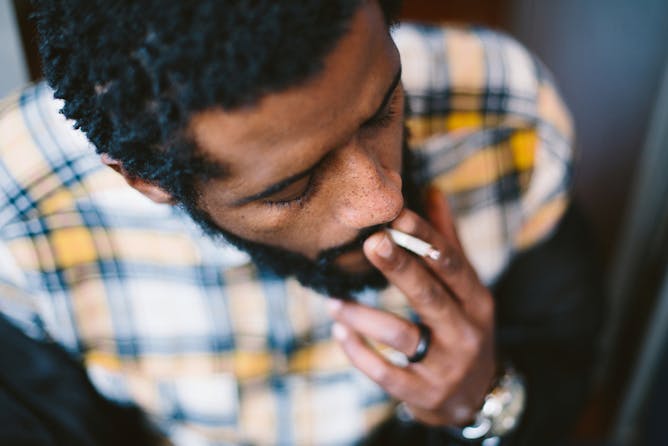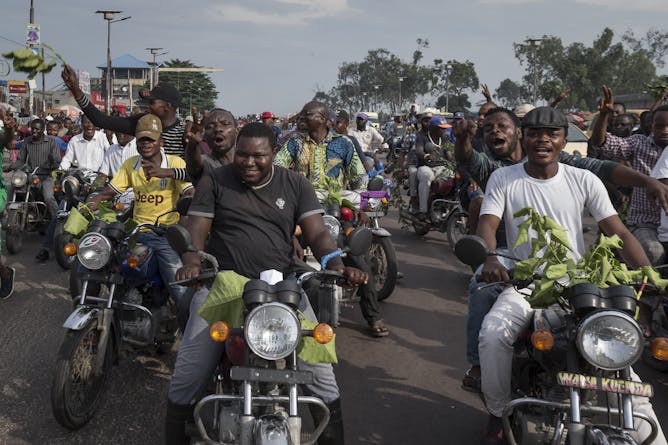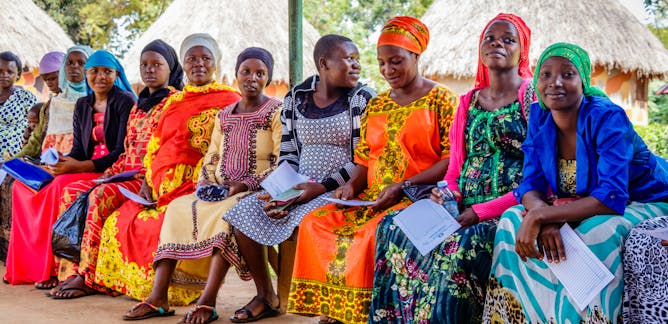|
|
|
Editor's note
|
|
Tobacco is a leading cause of death and illness across the world, and kills half of its users. In Africa, Nigeria was one of the first countries to introduce tobacco regulation. But implementation has stalled. Catherine O. Elbe, Stanton Glantz and Stella A. Bialous explain why the country’s tobacco control efforts are not showing results.
Entrepreneurship provides many women in Africa with an opportunity to earn an income and establish themselves in business. But they tend to start from a lower base than their male counterparts, with less start-up and investment capital, and little or no collateral security. Albert N. Kimbu and Michael Z Ngoasong draw on research from Cameroon to provide possible solutions.
The Democratic Republic of the Congo is still waiting for the outcome of its much anticipated presidential election, more than a week after polls closed. Speculation is rife that the result will see the end of the Kabila family’s stranglehold on power since 1997. Reuben Loffman writes that whoever takes over faces the enormous task of leading a country marred by unrest, poverty and underdevelopment.
The first edition of Pasha, The Conversation Africa’s first podcast, travels to Nairobi where the city is battling air pollution and traffic congestion. Haneen Khreis explores how car-free days may be a solution.
|
Ina Skosana
Health + Medicine Editor
|

|
|
Top Stories
|

Because of its size, Nigeria has the potential to boost the global anti-tobacco movement.
Shutterstock
Catherine O. Egbe, PhD, South African Medical Research Council; Stanton Glantz, University of California, San Francisco; Stella A. Bialous, University of California, San Francisco
The National Tobacco Control Act gives the tobacco industry inside access to the decision making process.
|

Women entrepreneurs need to be aware of existing government initiatives and networking opportunities.
Adam Jan Figel/Shutterstock/Editorial Use Only
Albert N. Kimbu, University of Surrey; Michael Z Ngoasong, The Open University
Women entrepreneurs in Africa struggle to obtain credit, and to access entrepreneurship education.
|

Supporters of the DRC’s opposition candidate, Felix Tshisekedi.
EPA-EFE/Stefan Kleinnowitz
Reuben Loffman, Queen Mary University of London
The DRC could be the exception after a year in which opposition parties fared badly across East and Central Africa.
|
Health + Medicine
|

Harriet Etheredge, University of the Witwatersrand
Religious and cultural beliefs play a role in the country's organ donor shortages. But these factors alone grossly oversimplifies the issue.
| |

Isabella Epiu, Makerere University
If women don't have access to quality emergency surgery, they can develop dibilitating complications such as fistula.
|
|
|
Arts + Culture
|
-
Ryan Szpiech, University of Michigan; Andries W. Coetzee, University of Michigan; Lorenzo García-Amaya, University of Michigan; Nicholas Henriksen, University of Michigan; Paulina L. Alberto, University of Michigan; Victoria Langland, University of Michigan
A small community of Afrikaners has been living in Argentina since the early 1900s. Linguistic research has found they're like a time capsule, reflecting pronunciation and syntax from an earlier era.
|
|
The Conversation Africa Podcast
|
-
Ozayr Patel, The Conversation
Car-free days could work in Nairobi where traffic, congestion and air pollution is a real problem.
|
|
En français
|
-
Eric Freedman, Michigan State University
Couvrir les sujets environnementaux est l’un des exercices les plus périlleux du journalisme. Entre 2005 et 2016, 40 reporters y ont laissé la vie.
-
Thierry Vircoulon, Sciences Po – USPC
Après la très probable gueule de bois électorale en RDC, on peut dessiner l'après-scrutin grâce aux déclarations du président sortant et de l'examen de la Constitution congolaise.
|
|
From our international editions
|
-
Michael Wade, IMD Business School; Jialu Shan, IMD Business School
TikTok was one of 2018’s most downloaded mobile apps for Apple and Android devices in the US and Europe.
-
Michael Chambers, Australian Catholic University
Navigating friendships as a teen can be hard. Parents can help by modelling good behaviour and making sure their teen feels they can talk to them about their friendships.
|
|
| |
| |
| |
| |
Would you like to republish any of these articles?
|
|
It’s free to republish, here are the guidelines.
Contact us on africa-republish@theconversation.com in case you need assistance.
|
| |
| |
| |
| |
|
|
|
|
|
|
|